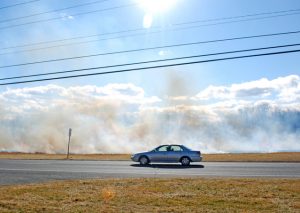Taking the High Road: Drivers Paid to Participate in Marijuana DUI Study
University of California-San Diego is conducting a study out of its Center for Medicinal Cannabis Research to better understand how marijuana use impairs driving. The study is the largest of its kind and seeks to gather some hard data on levels of cannabis and impacts on common driving scenarios, according to High Times. Participants will be paid for a full-day driving assessment in which they will smoke a joint before completing a variety of simulated driving scenarios. The joints are rolled on site, and each has a varying level of THC concentrations carefully monitored by the researchers.
understand how marijuana use impairs driving. The study is the largest of its kind and seeks to gather some hard data on levels of cannabis and impacts on common driving scenarios, according to High Times. Participants will be paid for a full-day driving assessment in which they will smoke a joint before completing a variety of simulated driving scenarios. The joints are rolled on site, and each has a varying level of THC concentrations carefully monitored by the researchers.
The study has two aims: to gather data on how different cannabis concentrations affect different drivers and to examine how long the high from THC will continue to affect the driver to the point of impairment, if at all. These answers are so crucial in the on-going efforts to legalize marijuana nationwide. A huge roadblock for many politicians, even the ones who do not fall for weak anti-marijuana propaganda, is the uncertainty about how to regulate marijuana usage on the roads. Methods that commonly are used to test for marijuana can detect it in a person’s system for up to two weeks. Clearly a person would not be too impaired to drive for 14 days after consuming marijuana. Therefore, law enforcement officers must rely on field sobriety tests to determine cannabis-related impairment. Their current tests, however, are largely geared toward alcohol or drugs that create a deep level of impairment. The effects of cannabis are often softer and less clear. Participants in this study will take a field sobriety test after smoking and completing driving tests, which in turn could help officers fine-tune their own tests to more effectively identify impairment for marijuana users. Continue reading
 Cannabis Law Group's Medical Marijuana Legal Blog
Cannabis Law Group's Medical Marijuana Legal Blog





 When someone is driving while intoxicated by liquor, there is no question as to the effects alcohol has on a person’s ability to drive, and the
When someone is driving while intoxicated by liquor, there is no question as to the effects alcohol has on a person’s ability to drive, and the 
